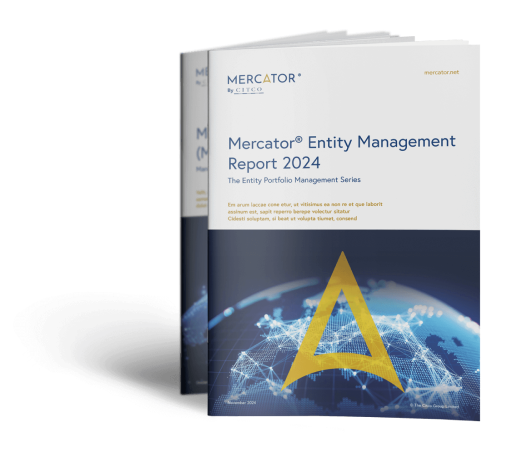The information contained in this document is marketing material and for informational purposes only. The information contained in this document is presented without any warranty or representation as to its accuracy or completeness and all implied representations or warranties of any kind are hereby disclaimed. Recipients of this document, whether clients or otherwise, should not act or refrain from acting on the basis of any information included in this document without seeking appropriate professional advice. The provision of the information contained in this document does not establish any express or implied duty or obligation between Citco and any recipient and neither Citco nor any of its shareholders, members, directors, principals or personnel shall be responsible or liable for results arising from the use or reliance of the information contained in this document including, without limitation, any loss (whether direct, indirect, in contract, tort or otherwise) arising from any decision made or action taken by any party in reliance upon the information contained in this document. © The Citco Group Limited, December 2024.
Ultimate Beneficial Ownership – The World’s Most Severe Compliance Penalties
With an ever-growing expectation for companies to know the individuals and partners with which they do business, regulatory penalties have never looked tougher.
In-house legal teams work in a complex environment where regulations across different jurisdictions change in a heartbeat. Due to increasing regulatory scrutiny, they must now consider an increased demand for a higher level of transparency on company beneficiaries – known as Ultimate Beneficial Owners (UBO) – to prevent the misuse of legal persons for money laundering and terrorist financing. Even the simplest of slip ups could bring regulators from around the globe crashing down with severe penalties and pose severe reputational risk to companies.
What is UBO and why does it matter?
An UBO describes the individuals or entities that are the ultimate beneficiary of a company. The definition of who constitutes a UBO varies between jurisdictions, but generally, a UBO is defined as an individual who holds at least a 25% stake in the entity’s capital, at least 25% of the voting rights and is a beneficiary of at least 25% of the legal entity’s capital.
UBO is key for any institution within the scope of money laundering and terrorist financing regulation, two crucial priorities which have emerged for regulators over the past few years. Multi-layered and multi-jurisdictional legal structures can obscure the identities of real beneficial owners, allowing organized criminals and high-profile individuals to launder illicit funds. With the global spend on financial crime compliance across financial institutions reaching $213.9 billion in 2021, robust UBO due diligence cannot be overlooked and must form a critical part of a company’s risk management.
Who is responsible for identifying and verifying UBOs?
UBO screening is a mandatory qualification to have for specific industries under the Money Laundering and Terrorist Financing Act. As part of The Financial Action Task Force (FAFT) Recommendation 24, member countries should require companies to maintain adequate, accurate and up-to-date information on their beneficial owners that can be obtained or accessed by authorities in an efficient manner, through either a register of beneficial ownership or an alternative mechanism.
UBO non-compliance – how high are the stakes?
Staying ahead of the curve on regulatory changes and obtaining comprehensive beneficial ownership information can prove to be a colossal task for even the most comprehensive legal teams, as the smallest error can lead to penalties. From significant increases in risks of financial crime to reputational damage, hefty financial penalties, loss of license and even criminal prosecutions, the implications of UBO non-compliance are wide-reaching. To bring to life just how costly the risks can be, we’ve compiled a list of the top five jurisdictions with some of the most painful penalties around the world.
Top five most painful UBO penalties
|
|||
|
|||
|
|||
|
|||
|
|||
What are some of the obstacles hindering UBO compliance?
Identification of UBO’s has never been more important or in the public eye across the globe. It is of paramount importance to ensure that all required UBO information is available within your own records and that registrations to public UBO registries are conducted accurately and timely.
However, this is complicated by jurisdictional discrepancies, as UBO regulations and reporting requirements tend to vary from country to country. A lack of availability of standardized documentation and reliable public register across jurisdictions slows the onboarding process to a snail‘s pace, creating costly inefficiencies. Moreover, it makes the role of supporting compliance obligations and validating beneficial ownership an onerous undertaking.
How can technology help improve UBO management?
The latest tech innovations can support legal teams in even the most complex regulatory tasks by centralising regulatory updates in one place, ensuring that teams know the ins and outs of upcoming regulatory announcements before they happen, and offering a layer of protection not only from the most egregious penalties, but from your company being used as a vehicle for criminal activity.
Chris Butler
Head of Operations, Mercator by Citco, Citco Mercator, UAB
This article was first published by the Chartered Governance Institute UK & Ireland – available here
Disclaimer: The information in this article is for informational purposes only and does not constitute legal advice in any way.

